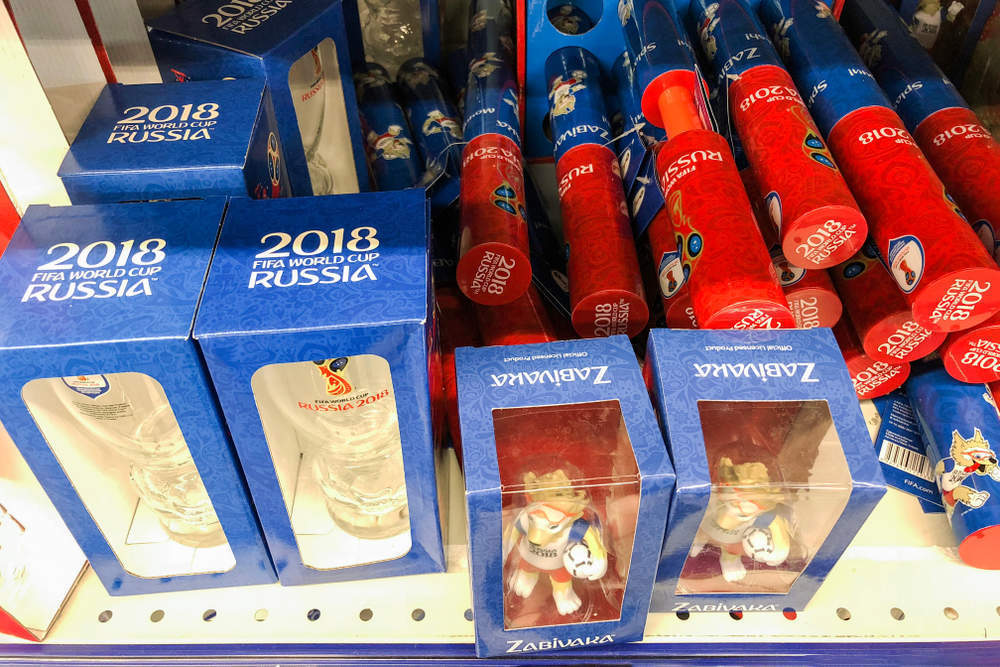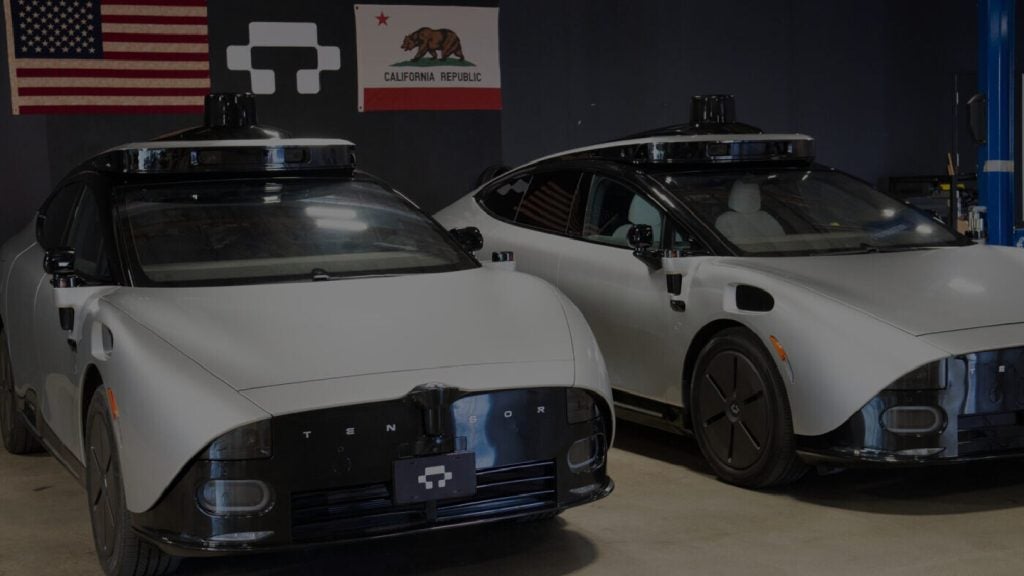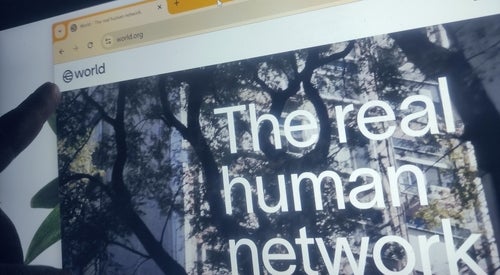
The United Kingdom economy will see a spending increase by £720m this summer, even if England crash out of the 2018 FIFA World Cup at the Round of 16 stage, according to the Centre for Economic and Business Research.
And yet, with Harry Kane leading the race for the Golden Boot and the Three Lions having cruised into the knockout stages with a 6-1 victory over Panama on Sunday, England fans are feeling optimistic about their chances of going all the way in Russia.

Access deeper industry intelligence
Experience unmatched clarity with a single platform that combines unique data, AI, and human expertise.
Those in the hospitality, gambling and retail industries will certainly be hoping that England perform better than in previous years.
According to Howard Archer, chief economic advisor to economic forecaster the EY ITEM Club, the World Cup’s impact on the UK economy will only increase as England continue to progress.
“The size of any impact will likely be determined by how far England go in the tournament. The better than England do and the more matches they consequently play in the tournament, the greater the potential positive impact will be on the economy,” Archer said.
According to discount code website VoucherCodes, that impact could be as much as £2.7bn if England manage to play their way to the World Cup final for the first time since they won the tournament in 1966. But what industries are benefiting most from the World Cup fever?

US Tariffs are shifting - will you react or anticipate?
Don’t let policy changes catch you off guard. Stay proactive with real-time data and expert analysis.
By GlobalDataGambling industry
Football fans in the UK have already wagered £2.5bn on the 2018 World Cup, up almost 50% on the total amount that was wagered throughout the 2014 tournament.
Given that four out of five bets have been made on in-play markets so far, that total is likely to jump significantly over the next three weeks. Bettors have wagered one fifth of that total in the last week, following the tournament’s start on 14 June.
At this rate, the industry will see total bets on the World Cup of around £4bn.
To put that into perspective, according to the UK Gambling Commission, the British public wagered £13.9bn in the 12-month period between October 2016 and September 2017.
Hospitality industry
Unsurprisingly, the hospitality industry will see huge revenue increases throughout the World Cup, as fans pack into the nation’s restaurants, pubs and clubs to catch the games.
According to VoucherCodes, the industry will have already made £193m by the time they play their Round of 16 tie early next month. Even if England fails to progress, the industry will bring in another £166m throughout the remainder of the tournament.
However, if England manages to make it to the Moscow final, hospitality spending will increase to £488m.
The British Beer and Pub Association predicted that 15m pints of beer would be consumed in pubs on the day of the England vs Panama game, up more than four million on the average Sunday.
According to pub chain Greene King, more than half a million adults in the UK plan on visiting a pub this summer to watch an England game, which should see spending climb after a disappointing year.
The chain saw annual profits fall by 10% to 12% between April 2017 and April 2018. However, analysts at investment bank Berenberg have tipped Greene King to be the biggest winners in the pub industry this summer.
Food and drink industry
While half a million people pack into Britain’s pubs to watch the tournament, millions more will be watching from the comfort of their homes.
England’s opening victory over Tunisia was the most watched television programme in the UK so far in 2018. Some 18.3m people tuned in at some stage of the game, which attracted an average viewership of 13.7m.
Viewing figures for the Panama game are unconfirmed. However, according to TV ratings provider Overnights.tv, the Panama game could bring in an audience of 25m due to its more favourable kick-off time. This would be the largest recorded TV audience in the UK since the 2012 Olympics.
It’s great news for broadcasters ITV, as well as the advertisers that paid out to put their product in front of football fans during the half-time break. However, it’s also good news for the food and drink industry.
The VoucherCodes study found that a run to the Round of 16 is worth more than half a billion pounds to retailers. This is a result of fans buying drinks and snacks to consume during the game, or throwing parties for their family and friends.
Supermarkets and off-licenses will take more than 55% of that total from alcohol sales alone. Supermarket chain Tesco has said that it expects to sell 140m bottles or cans of beer throughout the tournament, while Asda expects to sell 25,000 BBQs.
Should England go all the way in Russia, coupled with a spell of good weather, the celebrations will long continue. England prolonging their stay in the tournament beyond the Round of 16 stage could be worth as much as £1.1bn to the UK’s food and drink industry.
Sportswear industry
According to Reuters, approximately one in ten supporters will purchase a new England shirt leading up to or during the World Cup tournament.
Shirts cost around £45 for a children’s size and £60 for an adult size at major sportwear retailers like JD Sports, so the economic boost will be significant.
According to the VoucherCodes study, this will bring in $450m to $600m, approximately 14% of the total revenues that the UK’s biggest sporting goods retailer, JD Sport, recorded last year.
Video game industry
Back in 2014, as football’s biggest names headed to Brazil to compete in the World Cup, the video game industry saw revenues rocket by 24%. This equates to an additional $736m in hardware and software sales.
The release of Watch Dogs a month earlier certainly helped, as well as price drops on the Xbox One and PlayStation 4 consoles. However, the World Cup also played its part.
FIFA 14, a game that had been released the previous September, re-entered the top ten bestselling video games that month. The cause was the release of the FIFA Ultimate Team World Cup mode, which allowed users to unlock players and build their own World Cup teams.
EA Sports, the publisher behind the hit football franchise, will likely see a similar increase in sales again this month. Electronic Arts has released the same game mode again this year with updated squads.
Interestingly, the Electronic Arts stock price hit a peak price of $147 on 15 June, the day after the World Cup got underway.
Of course, Electronic Arts is based in the United States. However, you would hope that the company pays its fair share of tax back to the UK.
Electronics industry
The electronics industry is another that sees big gains in the months leading up to the World Cup, as football fans shell out on the biggest and highest quality television sets in order to watch the tournament.
According to UK retailer John Lewis, sales of big screen TVs jumped on the day of the opening ceremony. The retailer saw sales increase by 140% on televisions over 55 inches in size. Likewise, all television sales climbed 100% overall in the lead up to the tournament.
GfK Research, Germany’s largest market researcher, has predicted that 4K and Ultra-HD TVs will see a huge increase in sales in May and June. However, whether a large portion of consumers shell out will largely depend on how England perform in the coming weeks.
England’s progression past the group stage resulted in retailers selling 66,000 extra television sets, GfK estimated.
Toy industry
As World Cup fever kicked in, Panini saw their FIFA World Cup sticker books rise to the top of the UK toy charts.
Panini World Cup products ranked second, sixth and ninth for revenue in the best-selling toys charts in mid-May.
Football-related toy sales total £11m in the UK so far this year according to market researchers The NPD Group. The industry generated close to £1m of that in a week alone between May 13 and May 19. Panini products have likely been a mainstay in the top toy charts since.
Frederique Tutt, toys analyst at The NPD Group, told Retail Times:
““The last significant football event – the UEFA 2016 European Championship – had a huge impact on the toy industry. More than 24 million football-related toys were sold in the UK – that’s 6% of all the toy sales by volume in the country that year.”
The 2016 European Championship generated £26m in retail sales, and the World Cup is a considerably bigger event.
Negative impacts
The impact that the World Cup is having on business will have thrilled the alcohol industry. However, excessive drinking does lead to its fair share of problems. With many games scheduled for early kick-offs, fans are often in pubs and bars drinking from the early afternoon. With tensions high, there will undoubtedly be a fair few brawls breaking out around the country.
To counter the issue, police forces promised to deploy extra offerings to clamp down on rowdy behaviour during the tournament.
Ahead of the tournament, the Cambridgeshire Constabulary said that extra police officers would be patrolling pubs and bars during matches to deter anti-social behaviour and stop premises from selling alcohol to drunk fans.
Likewise, domestic violence is expected to increase during the tournament. Research conducted by Lancaster University found that domestic violence incidents climbed by 26% on days that England were playing. This figure rose to 38% when England lost a game.
In response, forces such as the Hampshire Constabulary and Cleveland Police will be deploying extra response cars specifically to deal with domestic abuse during the tournament.
Lost productivity
Employers will also be on the losing side this summer, as employees take it easy in the office to keep up with the latest goings-on in Russia.
The cost? Up to $19bn in lost productivity, according to bookmaker William Hill. That figure is based on 30% of the country’s labour force viewing a game.
The World Cup will hit German, Brazilian and Japanese companies worst. They will lose more than £8bn to under-performing workers during the tournament.
By William Hill’s calculations, the World Cup has already cost UK companies £560m in lost productivity after just two games.
However, England hasn’t felt the full effects of the World Cup yet. The schedule has seen England play both of their games outside of work hours. They paid their opening game on a Thursday evening and their second on a Sunday afternoon.
However, a run to the quarter-finals will cause losses of close to £1.4bn. A run to the final would cost UK companies close to £2bn, so the actual economic gains would be small at best.
Read more: World Cup 2030: The economic impact of hosting the FIFA tournament







